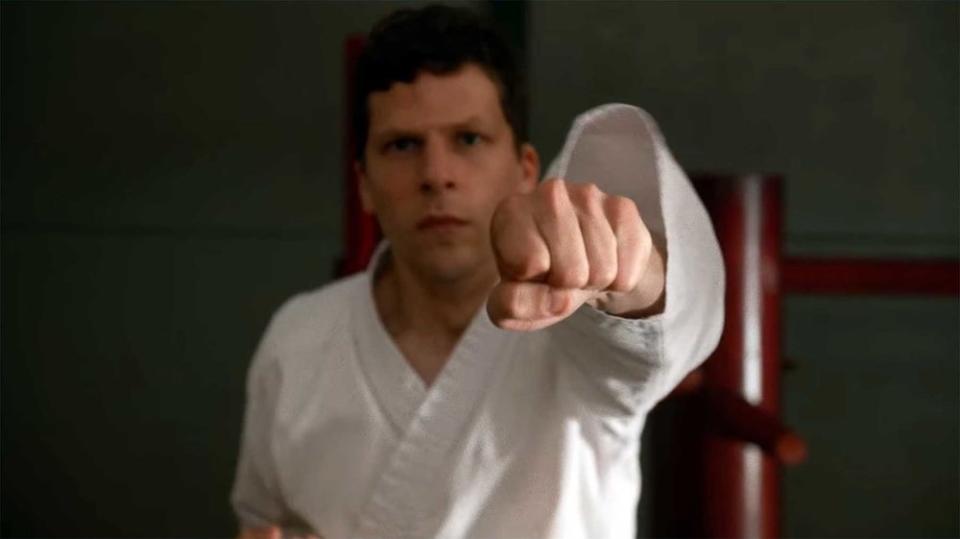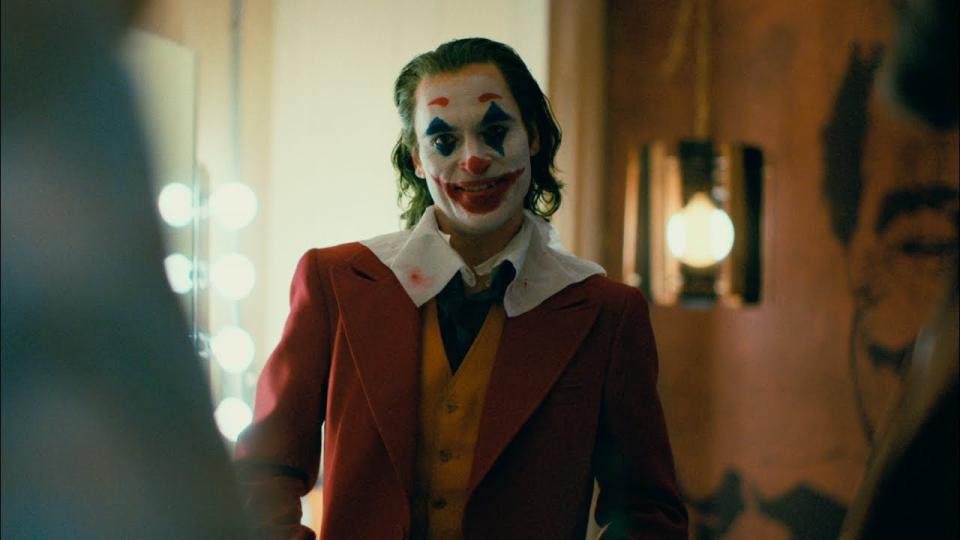How toxic masculinity is being addressed on screen in 2019 for better and for worse

When the Me Too Movement went mainstream in 2017 it put a mirror up to society and how it treats men and women differently. Pop culture has long been a reflection of the world, so it didn’t take long for film and television series to begin grappling with the issues of consent, assault and imbalanced gender dynamics.
One theme that has become more resonant on screen in recent years, for better and for worse, is toxic masculinity. The phrase refers to the harmful impact of certain masculine traits on men, on women and on society in general, which normally stems from repressed emotions and often leads to violent and aggressive acts.
Last week saw the release of Ad Astra, which sees Brad Pitt go on a solo space mission to find his missing father, a character critic Mark Kermode describes as a “pathologically ‘compartmentalised’ hero [who has] an almost android-like detachment from human emotions; love, fear, empathy.”
Pitt himself discussed how he and director James Gray were trying to explore the traditional idea of masculinity as well as, you know, space travel.
"In retrospect, I look back on our early conversations - director] James [Gray] and I - and what we were really digging at, without labelling it so much, was this definition of masculinity," he said.
Read more: Rambo creator hates new Rambo movie
"Having grown up in an era where we were taught to be strong, not show weakness, don't be disrespected, and so on and so forth, there's a certain value in that as far as entering into the world and holding your own, but there's also a barrier that's created with this kind of embracing of the self, because you're denying, to a sense, those pains or the things (that make) you feel shame, whether real or imagined, the regrets in one's life."

That sort of old school masculinity has not exactly faded from cinema - films like Dragged Across Concrete, Rambo: Last Blood and Shaft revel in it, while others are trying to disassemble it.
Will Poulter’s Midsommar character Mark is a perfect example of modern toxic masculinity so it makes sense that Ari Aster let him be picked off first.
“It was fun to play the poster child for how not to be, as a man in the modern-day, and I think unapologetically expose someone for being regressive and out of touch,” Poulter told EW.
Read more: There's a pattern of faux feminism in blockbusters
“He’s actually this deeply insecure, self-loathing person. He survives on a kind of emotional currency of laughs. I hope that the commentary on relationships, platonic or romantic, in the film encourages a conversation of how we treat each other, and how we serve our relationships.”

Masculinity is addressed more overtly in Jesse Eisenberg’s The Art of Self-Defence, a black comedy about an office worker who takes karate classes after being attacked by a motorcycle gang. Eisenberg plays said office worker Casey, who is scared of other men and tells his new karate instructor, played by Alessandro Nivola, he “wants to be what intimidates me”.
“That kind of masculinity is both aspirational and also absurd to me,” Eisenberg told Vox.
“And I thought the movie presented [traditional ideas about masculinity] in a really sly way because the movie was not didactic or judging it; it was just kind of presenting it in the clothes of a satire, and therefore you’re watching it and laughing at it.”

There’s a lot of laughing in Joker, Todd Phillips’ take on the Batman villain in the standalone film starring Joaquin Phoenix, though the film is no laughing matter. Riffing off Alan Moore’s The Killing Joke comic book run, this film is about the events that led to him becoming the terrorising Clown Prince of Crime in Gotham’s underworld.
Like Casey in The Art of Self-Defence, Phoenix’s Arthur Fleck is the victim of a vicious attack by a group of men. Instead of joining a dojo though, Arthur takes his frustration out on the people around him in a deadly manner, in a way that can be read as a reflection of modern “incel” culture and mass shootings in America. But Phillips doesn’t necessarily present this response as unacceptable more than he presents it as understandable.
In his defense, Phillips claim his film discusses the causes of toxic masculinity telling IGN in a recent interview: “The movie makes statements about a lack of love, childhood trauma, lack of compassion in the world. I think people can handle that message.”

There’s certainly an argument for trying to understand why men manifest such violent and aggressive desires, even more so on the small screen when there is more time for character development. 13 Reasons Why on Netflix certainly agrees with it.
The writers do the most to present the worst examples of toxic masculinity in a sympathetic light. Tyler is bullied and sexually assaulted which somewhat excuses him from an attempted mass shooting.
Serial rapist Bryce gets even more sympathy as a poor rich kid who’s only like he is because of not getting enough love and attention at home which leads him to follow in his father and grandfather’s misogynist footsteps. Then there’s Monty whose toxic, violent behaviour is because he’s gay and gets beaten by his dad.

Redemptive storylines for toxic male characters aren’t exactly new, Sam Rockwell won an Oscar for his in Three Billboards Out of Ebbing, Missouri, but seeing several in one series with little regard for the female characters is rather jarring.
In comparison, Unbelievable puts the story firmly in the hands of women as it looks into a rape investigation gone wrong and one that has gone well. The series, starring Kaitlyn Dever, Merritt Weaver and Toni Collette, shows how institutionalised misogyny can have a negative and harmful effect on cases of sexual assault without framing the serial rapist as a sympathetic character.
Film and TV has long been an influential medium through which to understand the world and right now there is a rise of a certain brand of masculinity that is doing more harm than good.
FIlmmakers in 2019 are clearly trying to examine and expose the most toxic examples so hopefully, their efforts will do more to combat, than enable it to thrive.


